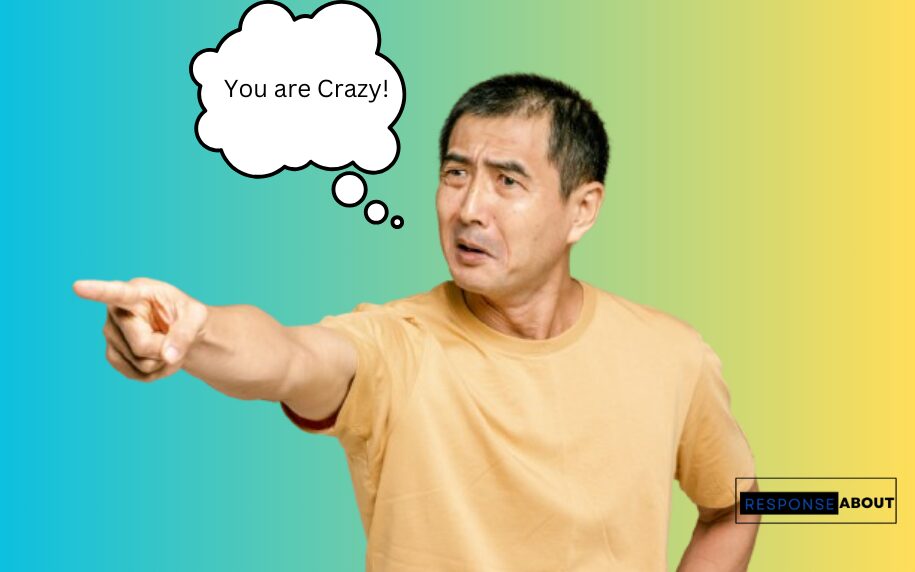Hey there, friend! You know how it goes—you’re just living your life, doing your thing, and then BAM! Someone hits you with the “crazy” label. It’s like, really? Just because I don’t fit into your little box of “normal,” suddenly I’m the crazy one? Please.
But you know what? It’s all good. Because we’re about to dive into the 30 best ways to clap back when someone tries to stick you with that “crazy” label. So buckle up, buttercup—it’s time to get our comeback game on point!
30 Best Responses When Someone Calls You Crazy
1. “I prefer the term ‘mentally creative.'”
You know what they say—crazy is just a side effect of being awesome. So why not embrace it? When someone calls you crazy, just hit ’em with this little gem. It’s like, yeah, I’m not crazy—I’m just mentally creative. Boom.
2. “Sanity is overrated anyway.”
Let’s be real—who wants to be sane all the time? It’s boring! When someone tries to call you out for being a little off-kilter, just shrug it off with this classic comeback. Sanity is overrated anyway, right?
3. “I’m not crazy, I’m just ahead of the curve.”
You know how it goes—first they call you crazy, then they try to copy your style. When someone tries to put you down for being different, just remind them that you’re not crazy—you’re just ahead of the curve. They’ll catch up eventually.
4. “Crazy is just a word boring people use to describe fun people.”
Ain’t that the truth? When someone calls you crazy, it’s like they’re just admitting that they’re too boring to keep up with you. So go ahead and wear that “crazy” label like a badge of honor—it just means you know how to have a good time!
5. “I’m not crazy, I’m just a limited edition.”
You know what they say—crazy is just a side effect of being one-of-a-kind. So when someone tries to stick you with that label, just remind them that you’re not crazy—you’re just a limited edition. And who doesn’t want to be a collector’s item?
6. “Crazy is just a word the ignorant use to describe the brilliant.”
You know how it is—some people just can’t handle a little bit of genius. When someone calls you crazy, just remember that it’s probably because they’re too ignorant to recognize your brilliance. Their loss, right?
7. “I’m not crazy, I’m just living life on expert mode.”
Life’s too short to play it safe all the time, am I right? When someone calls you crazy, just remind them that you’re not crazy—you’re just living life on expert mode. It takes a special kind of person to handle that kind of intensity, and you’re up for the challenge!
8. “Crazy is just a word dull people use to describe the interesting.”
Let’s be real—some people are just too dull to appreciate a little bit of excitement in their lives. When someone tries to call you crazy, just remember that it’s probably because they’re too boring to keep up with your interesting life. Sucks to be them!
9. “I’m not crazy, I’m just a few standard deviations from the mean.”
You know what they say—normal is just a setting on the dryer. When someone tries to call you crazy, just hit ’em with a little bit of statistics humor. You’re not crazy—you’re just a few standard deviations from the mean. And who wants to be average, anyway?
10. “Crazy is just a word the unimaginative use to describe the creative.”
Some people just can’t handle a little bit of creativity in their lives. When someone calls you crazy, just remember that it’s probably because they’re too unimaginative to appreciate your unique perspective. Their loss, right?
11. “I’m not crazy, I’m just a bit of a mad scientist.”
Embrace your inner evil genius! When someone calls you crazy, just remind them that you’re not crazy—you’re just a bit of a mad scientist. And who knows what kind of world-changing inventions you might come up with?
12. “Crazy is just a word the conventional use to describe the unconventional.”
Let’s be real—some people just can’t handle anything outside of their narrow little worldview. When someone tries to call you crazy, just remember that it’s probably because they’re too conventional to appreciate your unconventional awesomeness.
13. “I’m not crazy, I’m just a free spirit.”
Life’s too short to be tied down by boring societal norms, am I right? When someone calls you crazy, just remind them that you’re not crazy—you’re just a free spirit. And who doesn’t want to be free?
14. “Crazy is just a word the mundane use to describe the extraordinary.”
Some people just can’t handle a little bit of extraordinary in their lives. When someone tries to call you crazy, just remember that it’s probably because they’re too mundane to appreciate your awesomeness. Sucks to be them!
15. “I’m not crazy, I’m just a little bit left of center.”
Embrace your quirky side, my friend! When someone calls you crazy, just remind them that you’re not crazy—you’re just a little bit left of center. And who wants to be right in the middle, anyway?
16. “Crazy is just a word the unenlightened use to describe the enlightened.”
You know how it goes—some people just can’t handle a little bit of enlightenment. When someone tries to call you crazy, just remember that it’s probably because they’re too unenlightened to appreciate your wisdom. Their loss, right?
17. “I’m not crazy, I’m just a rebel with a cause.”
Embrace your inner rebel, my friend! When someone calls you crazy, just remind them that you’re not crazy—you’re just a rebel with a cause. And who doesn’t love a good rebel?
18. “Crazy is just a word the boring use to describe the exciting.”
Let’s be real—some people just can’t handle a little bit of excitement in their lives. When someone tries to call you crazy, just remember that it’s probably because they’re too boring to appreciate your zest for life. Sucks to be them!
19. “I’m not crazy, I’m just a little bit eccentric.”
Embrace your inner weirdo, my friend! When someone calls you crazy, just remind them that you’re not crazy—you’re just a little bit eccentric. And who wants to be normal, anyway?
20. “Crazy is just a word the unimaginative use to describe the imaginative.”
Some people just can’t handle a little bit of imagination in their lives. When someone tries to call you crazy, just remember that it’s probably because they’re too unimaginative to appreciate your creativity. Their loss, right?
21. “I’m not crazy, I’m just a little bit outside the box.”
Embrace your unique perspective, my friend! When someone calls you crazy, just remind them that you’re not crazy—you’re just a little bit outside the box. And who wants to be stuck inside a boring old box, anyway?
22. “Crazy is just a word the uninspired use to describe the inspired.”
You know how it goes—some people just can’t handle a little bit of inspiration. When someone tries to call you crazy, just remember that it’s probably because they’re too uninspired to appreciate your passion. Their loss, right?
23. “I’m not crazy, I’m just a dreamer.”
Embrace your inner dreamer, my friend! When someone calls you crazy, just remind them that you’re not crazy—you’re just a dreamer. And who doesn’t love a good dreamer?
24. “Crazy is just a word the unenlightened use to describe the visionary.”
Some people just can’t handle a little bit of vision in their lives. When someone tries to call you crazy, just remember that it’s probably because they’re too unenlightened to appreciate your forward-thinking. Their loss, right?
25. “I’m not crazy, I’m just a bit of a wild child.”
Embrace your inner wild child, my friend! When someone calls you crazy, just remind them that you’re not crazy—you’re just a bit of a wild child. And who wants to be tame all the time, anyway?
26. “Crazy is just a word the unimaginative use to describe the adventurous.”
Let’s be real—some people just can’t handle a little bit of adventure in their lives. When someone tries to call you crazy, just remember that it’s probably because they’re too unimaginative to appreciate your thirst for excitement. Sucks to be them!
27. “I’m not crazy, I’m just a little bit unorthodox.”
Embrace your unique approach to life, my friend! When someone calls you crazy, just remind them that you’re not crazy—you’re just a little bit unorthodox. And who wants to be orthodox all the time, anyway?
28. “Crazy is just a word the uninspired use to describe the passionate.”
You know how it goes—some people just can’t handle a little bit of passion in their lives. When someone tries to call you crazy, just remember that it’s probably because they’re too uninspired to appreciate your zeal. Their loss, right?
29. “I’m not crazy, I’m just a bit of a rule-breaker.”
Embrace your inner rebel, my friend! When someone calls you crazy, just remind them that you’re not crazy—you’re just a bit of a rule-breaker. And who wants to follow all the rules all the time, anyway?
30. “Crazy is just a word the boring use to describe the interesting.”
Let’s be real—some people just can’t handle a little bit of interesting in their lives. When someone tries to call you crazy, just remember that it’s probably because they’re too boring to appreciate your fascinating perspective. Sucks to be them!
Conclusion
So there you have it, folks—30 killer comebacks for when someone tries to stick you with that “crazy” label. Remember, being called crazy is just a side effect of being awesome. So embrace your unique, creative, adventurous, passionate self and let your freak flag fly!
And if anyone tries to bring you down, just hit ’em with one of these epic one-liners and keep on doing your thing. Because at the end of the day, life’s too short to waste time trying to fit into someone else’s boring little box.
So go out there and be your beautiful, brilliant, one-of-a-kind self—and if anyone calls you crazy, just remember: it’s their loss, not yours. Keep shining, my friend!


